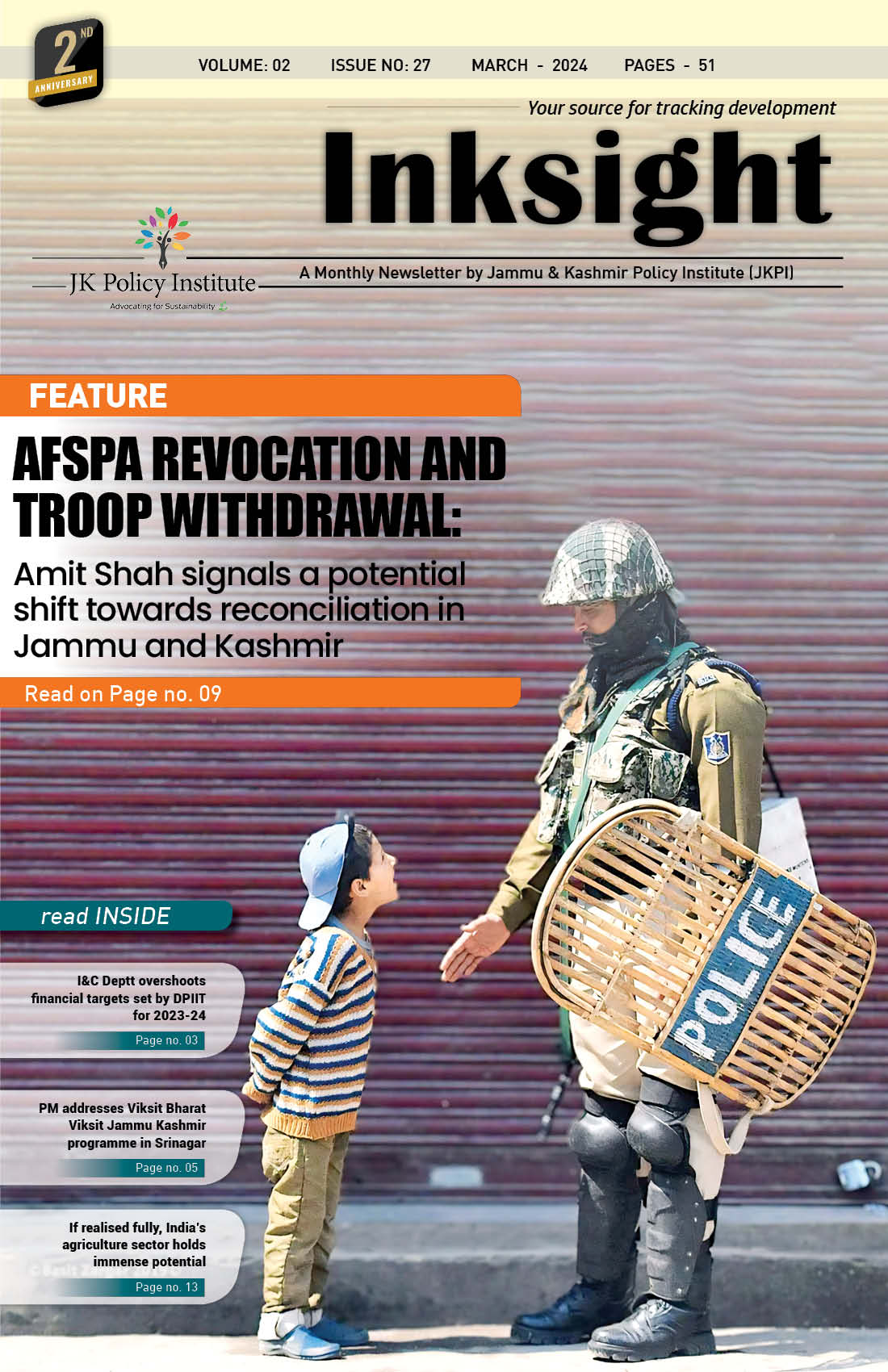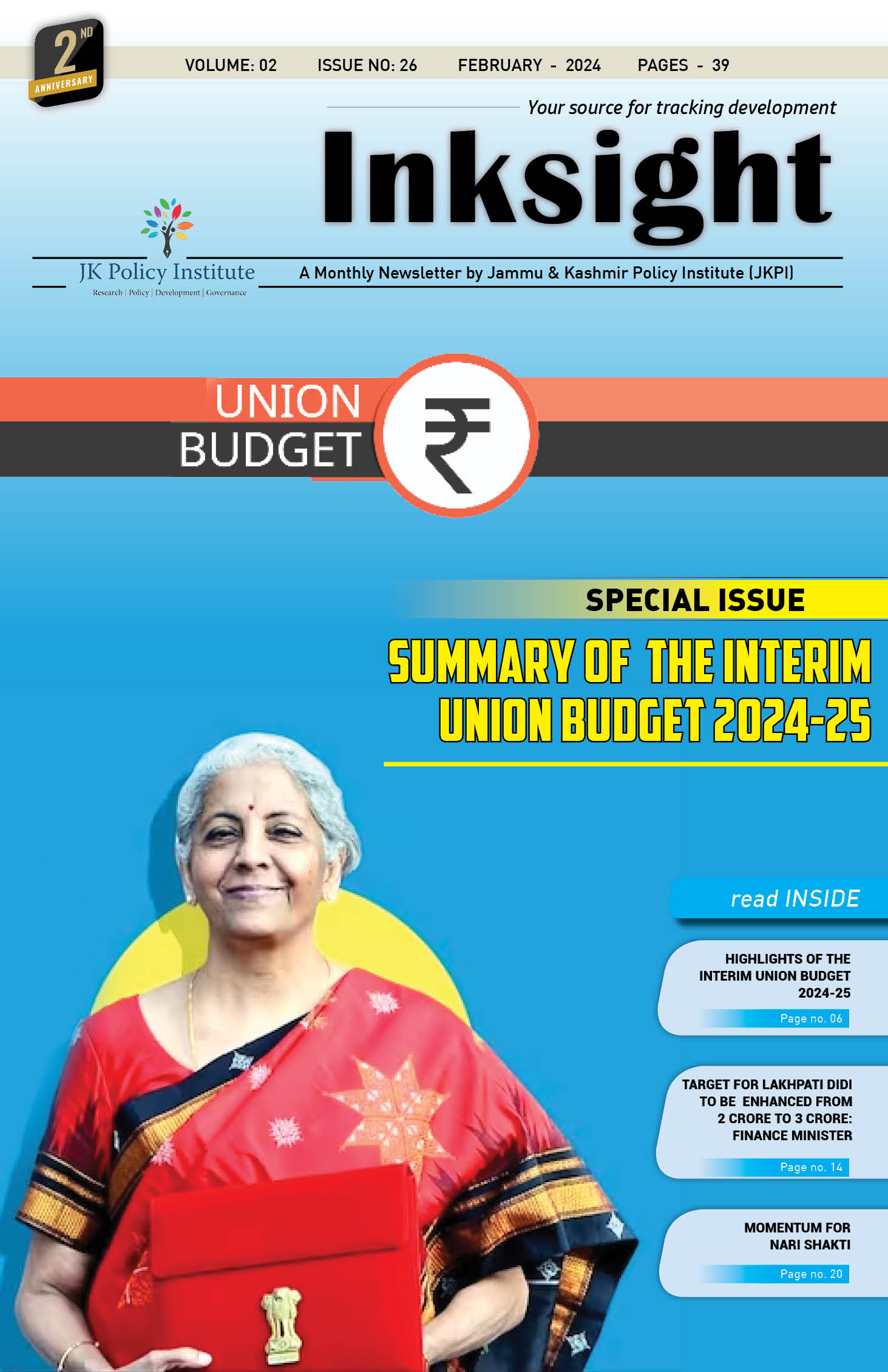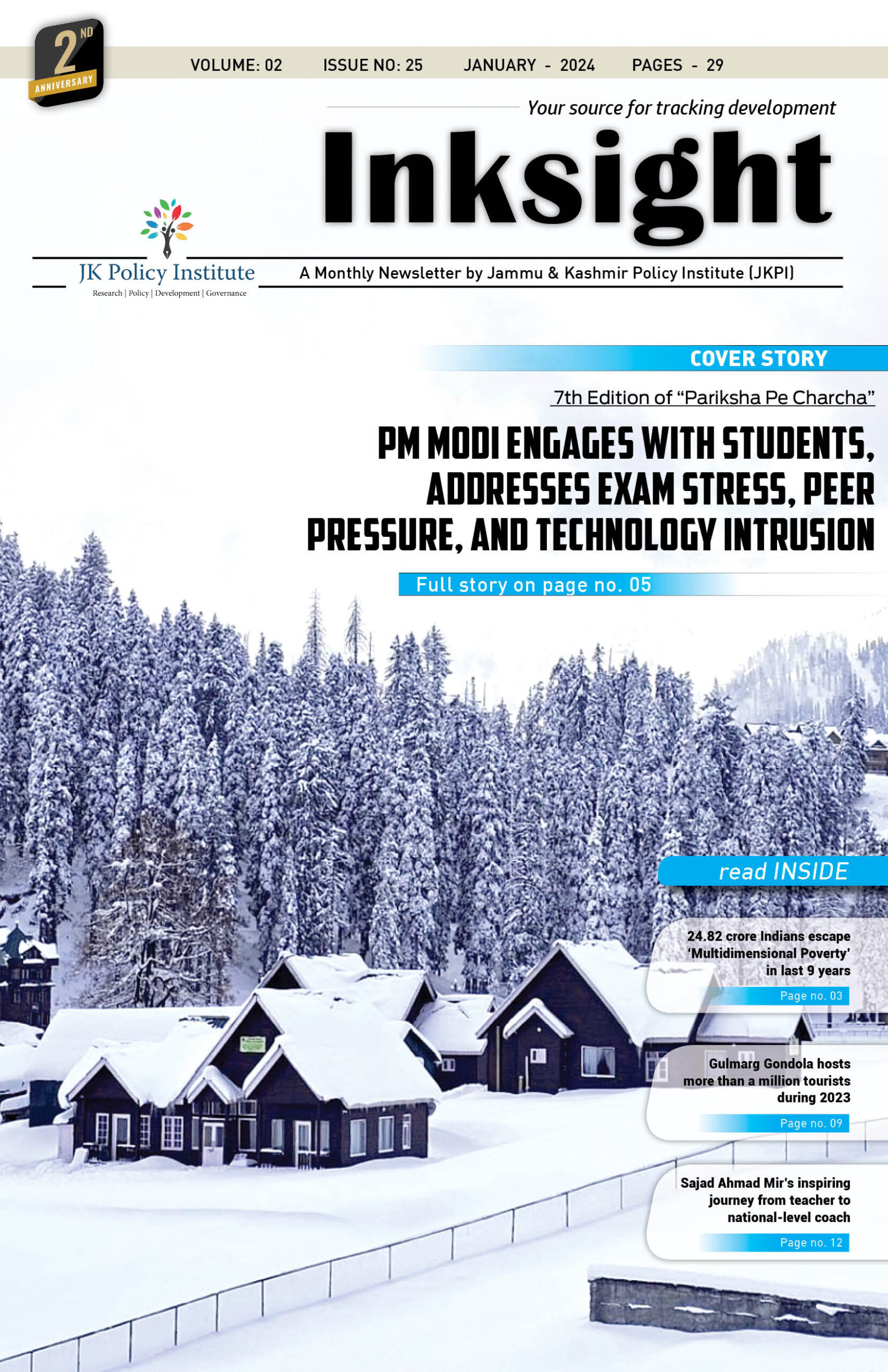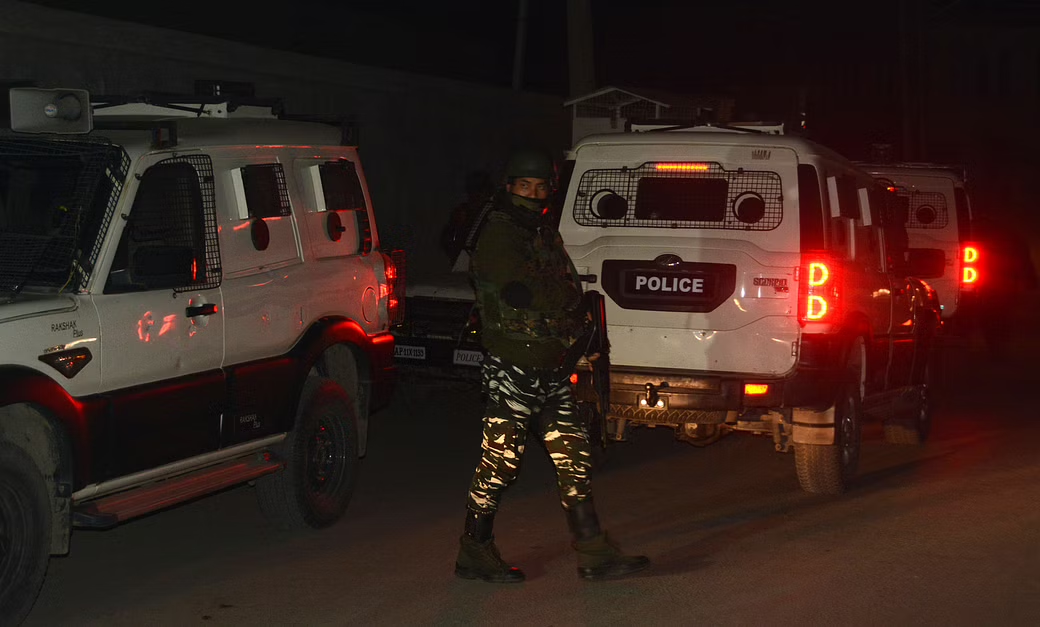New Delhi needs to evolve a multipronged security model — one that would bring in the expertise of a bevy of professionals and not just of the traditional domain experts.
By Danish Iqbal
The focus of the political and security functionaries comes to the fore, every time a major security lapse happens in Jammu and Kashmir, and soon as the news hoopla dies down, so does the debate. In the last three decades, successive governments have tried to build an exhaustive security architecture that would contain the elements antithetical to peace but have failed to deliver any substantial results. And one of the chief reasons, for failing to build a security network, is that these governments viewed security as a component of their political dividend and not just purely a professional job free from electoral ramifications. Thousands of lives were snuffed out, yet those were just the stats only important in the calculus of their electoral victories. People’s sorrow over the decades and the severe brevity with which it was articulated in some of the international bestsellers did not motivate the erstwhile rulers of Jammu and Kashmir to genuinely put an end to the violence and instead they chose to glorify violent discourses so the territory of the ruling class remains unchallenged. A manageable degree of violence was allowed to prevail so that they could blackmail their masters in New Delhi and in the absence of their rule, Kashmir could mean a serious assault on the sovereignty of India. They succeeded in their bidding in New Delhi to not disturb the status quo and their demands were repeatedly agreed upon. Back home in Kashmir, they would create a sustained campaign to chide the idea of India and motivate an innocent gullible Kashmiri that in the absence of their government Kashmir will go into total control of India. The staid academic conferences, held in various parts of the world, over the tragedy of Kashmir, were blatantly dusted off as a matter too trivial to debate. This phenomenon of the politics of blackmail delivered a complex economic and political structure that served only the minuscule elite of the state. The politics thrived in the deep chasm that prevailed between New Delhi and Jammu and Kashmir. This was the structural flaw in the security policy of the erstwhile state and did not leave any scope for improvement in the components that came afterward. The era finally drew to a close three years ago.
Three years after the groundbreaking changes in Jammu and Kashmir, peace has not returned. Although, an occasional calm does appear but for a spell too brief to be called normal. In a year, a dozen people belonging to the minority community, two dozen elected representatives were killed, and most recently a Director General rank official of the Jammu and Kashmir police was mercilessly murdered, ironically at a time when the Union Home Minister was at a place in Jammu not far from the house where the ghastly crime was commissioned. As I write this piece, another Kashmiri Pandith has been gunned down while two nonlocal laborers were blasted while they were sleeping in a far-off village called Harmain in the district Shopian, south of Srinagar. These incidents have been occurring for decades and are highly unlikely to disappear in the near future. In the aftermath of such incidents, the government conveniently revamps its security policy but remains always entrenched within the web of complex rule-based procedural structure as reflected from the ground affairs. This is exactly where the new government carrying a new attitude in its demeanor is almost if not fully walking the same road as the earlier governments. Therefore, to truly revamp the security in Jammu and Kashmir, New Delhi needs to take a complete break from the traditional approaches and bring to the fore a policy that will accommodate the multiplicity of realities of life in Kashmir. The most dominant reality that stares at you is that security is intricately linked to politics and any attempt to segregate it from politics has often translated into a public outburst as has repeatedly happened in the absence of sincere political engagement. The overarching problem of identity crises – one that is an old problem and would continue to be at the root of political and security concerns. To bring it to the proper assessment, the government in New Delhi needs to employ a range of professionals – ranging from political scientists to sociologists, from historians to psychologists and facilitate the evolution of an eclectic security model that will address the complex aspects of the problem in Kashmir. The traditional approach of dealing with Jammu and Kashmir must therefore immediately stop – the approach to conveniently label the anxieties of people as ‘law and order’ and leaving the solution to naïve thirty-year-old Indian Police Service officers amounts to belittling the complexity of Jammu and Kashmir and committing travesty with the emotions and energies of the people who to a large extent have shown an eagerness to work for the peace, progress, and development of India. In hard words and meaning no disrespect to the institution of the Indian Police Service – outsourcing security entirely to a group of young Indian Police Service officers who have been just out of college from some far-off city in the country and giving them the responsibility of managing complex districts of Kashmir is the fallacy of interpretation and shallowness of vision on part of the top security brass in New Delhi who advises the Prime Minister on Kashmir. It would be also expecting too much from a thirty-year-old new boy in the service to understand the layers of security history that often lie beneath the manifestation of killing. On the contrary, an extensive security grid needs to be built not necessarily to be manifested in terms of hard power but could be created in the most subtle designs. In my opinion, the local police officers who come from the state police service should be taken into confidence and given autonomy in advising on the situation. In the universities, colleges, and schools, a vast number of the population could be streamlined into a thought process that might not be strictly within the government-defined contours but could be afforded by the flexibility and the vastness of the Indian constitution. For such an exercise, the government needs to bring professors with world-class education back to the universities and colleges of Kashmir who are willing to work in the national interest. New Delhi can use its global economic clout and its rising start-up boom to usher the youth of Jammu and Kashmir into upward economic mobility. It’s always in the prevalence of governance paralysis that the frustration of youth has translated their concerns into entering the extra-constitutional territories. This should however in no way suggest that economics should cover the political sentiment underlying at the core of Kashmiri youth. This is rather to suggest that the vast possibilities within the national mainstream could afford to engage with the sentiment and deliver on the dream that the majority of youth in Kashmir envision for their homeland. A large number of youth have to be convinced that the constituents of their envisioned political identity can be accommodated in the politics that could be exhibited within the constitution of India. Those possibilities need to be campaigned extensively about by the youth leaders who can strongly, brilliantly, and convincingly speak and not just the mediocre self-proclaimed spokespersons who do more damage to the idea of India in Kashmir than any good.
It’s also time for the Government of India to seriously take into consideration the various influential lobbies which have come up in clusters across the various cities of the United States to whip up anger amongst the innocent Kashmiri youth against India. These lobbies comprising mostly professors and students regularly appear in the different forms of media to concoct the facts out of their contexts so that the content sells across the elite news websites and paves the way for their career growth. What implication their work has in Srinagar is something they are least bothered about. For them, Kashmir is a two-month summer trip while the revolution that they glorify on social and print media has to be pursued by the poor man’s son. The killings, the mourning, the pain, the PSAs, the UAPAs, and a long list of pathos that come with the harsher side of ‘revolution’ have to be exclusively reserved for the poor children of the valley who could not afford to take the plane to foreign lands. Also for them, security does not matter, governance does not matter and the everyday grievances of life are too small to be addressed by them. According to their whims and wishes, the government in Srinagar should give up and leave Kashmir in flames so that they would have merry fun in their fancy articles and academic conferences. New Delhi pays a heavy cost on its internal security in lieu of a desire to appear liberal to the authorities in the United States. Lately, there has been a temptation to take recourse into the operational means to stop the internal security fallout as a result of this foreign incitement. But again that would be a wrong decision. The way forward is to counter the narrative with another narrative. And the best way for pursuing it would open up space in top Indian Universities for those who can exhibit intellectual appropriation of the national agenda. The agenda of peace, progress, and security. Intervening in the problem with a security mindset often does more damage to the image of India internationally than solving any problem.
The government in Srinagar needs to build close coordination between the security and other departments so that the synergy taps into the everyday aspirations of the youth. The system needs to be in a perceptive, razor-sharp state so that the perceived heroism hitherto seen in violence changes into nation building exercise. The gradual process would eventually wipe out the seeds of violent tendencies and start stigmatizing the concept of violence. Eventually, there will be a steep fall in the social sanctity that society has conventionally accorded to violence. This way a natural, purely organic onslaught against the violence would begin whose shelf life would last into the foreseeable future, and Jammu and Kashmir would have normalcy worth the name.
Danish Iqbal is pursuing a Ph.D. in International Relations. He writes on politics and security. He can be reached at [email protected]
The views expressed in this publication are those of the author(s) and do not reflect the opinions/beliefs of the JKPI or its affiliates.





Leave a Reply
You must belogged in to post a comment.